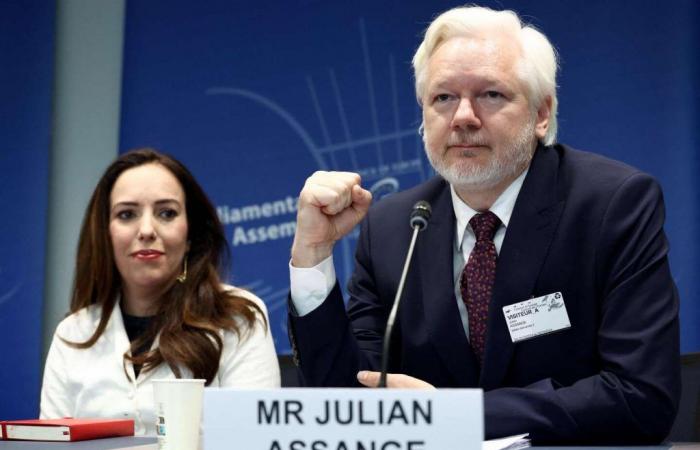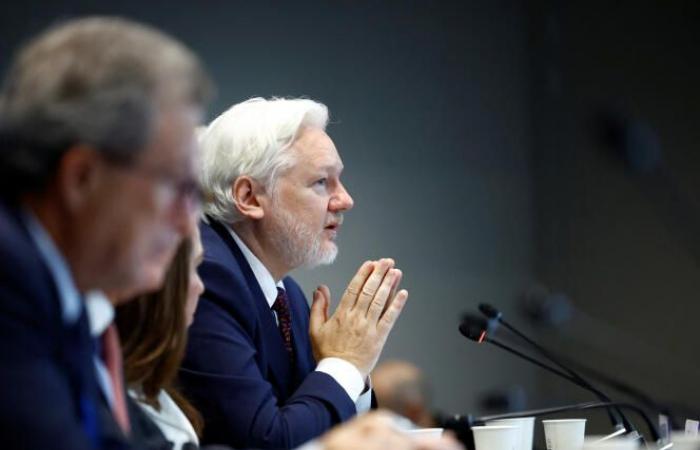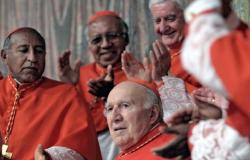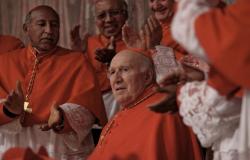Julian Assange, the founder of WikiLeaks, was Tuesday 1is October before a Council of Europe commission charged with studying his conditions of detention. This is the first time he has spoken since his release from prison. Dressed in a dark suit and a burgundy tie, sporting a white beard, he was accompanied by his wife, Stella Assange, as well as one of his oldest traveling companions, the Icelandic Kristinn Hrafnsson. The Australian looked visibly tired, speaking slowly and in choice words.
“I am not free today because the system worked. I am free today after years of incarceration because I pleaded guilty to journalism. I pleaded guilty to requesting information from a source » he denounced, in reference to the agreement to plead guilty made with the American Department of Justice. “I ended up choosing freedom over unattainable justice after being in detention for years and risking a 175-year sentence with no real recourse”he again denounced.
The charges against him in the United States mainly concerned the usual actions of investigative journalists, even if according to American authorities, some of the information published endangered sources in the army and American diplomacy on the ground. . Julian Assange and his organization, WikiLeaks, published beginning in 2010 and in partnership with major international media outlets, including The Worldhundreds of thousands of classified documents relating to U.S. military and diplomatic activities, as well as accounts of extrajudicial killings and intelligence gathering against Washington’s allies.
Read also | Julian Assange: chronology of a fierce legal battle
Add to your selections
Julian Assange spent seven years in the premises of the Ecuadorian embassy in London, where he took refuge to flee an extradition request in connection with accusations of rape and sexual assault in Sweden. Incarcerated after Ecuador stopped providing him protection, he was then targeted by American justice through an extradition request and spent seven years in British prisons fighting it.
“Journalism is not a crime”
On Tuesday, the journalist and activist said he regretted “the extent of lost ground” during his time in cell and the effects of the American prosecutions targeting him on freedom of expression in general. “I see more impunity, secrecy, reprisals for telling the truth and more self-censorship”he declared in his long introductory remarks. “It’s hard not to connect the US government’s decision to criminalize journalism with the chilly climate that reigns over freedom of expression” judged the Australian.
“Journalists should not be prosecuted for doing their job. Journalism is not a crime, it is a pillar of a free and informed society. The criminalization of news gathering is a threat to investigative journalism. I have been formally condemned by a foreign country for having requested, received and published proven information about that country while I was in Europe. he said again.
Read the editorial | Julian Assange, free but not cleared
Add to your selections
The founder of WikiLeaks was invited by the Council of Europe because one of its commissions is investigating “the detention and conviction of Julian Assange and their chilling effects on human rights”. The Parliamentary Assembly of the Council of Europe (PACE), made up of elected officials appointed by the parliaments of the 46 member states, will debate on Wednesday following this hearing.
“Tackling dissident voices in Europe”
“It is important that (…) norm-creating institutions like PACE act so that what happened to me does not have to happen to others”he insisted, and continued: “When powerful nations feel justified in targeting individuals beyond their borders, those individuals have no chance, unless there are strong safeguards and a state determined to implement them. »
The World
Special offer for students and teachers
Access all our content unlimitedly from €6.99/month instead of €12.99.
Subscribe
“I hope that my testimony can highlight the weaknesses of existing safeguards », he argued, adding that according to him, “The lack of effective protections means that Europe risks seeing its extradition treaties abused by foreign powers to attack dissenting voices in Europe”.
Julian Assange also spoke about his conditions of detention. “The experience of being isolated for years in a small cell is difficult to express. It strips the individual of his identity, and leaves only the raw essence of existencehe whispered. I am not yet ready to talk about what I suffered, the constant struggle to stay alive, both physically and mentally, and the deaths by hanging, murder or medical neglect of my cellmates. »
Read also | Article reserved for our subscribers The return of “hero” Julian Assange to Australia
Add to your selections







